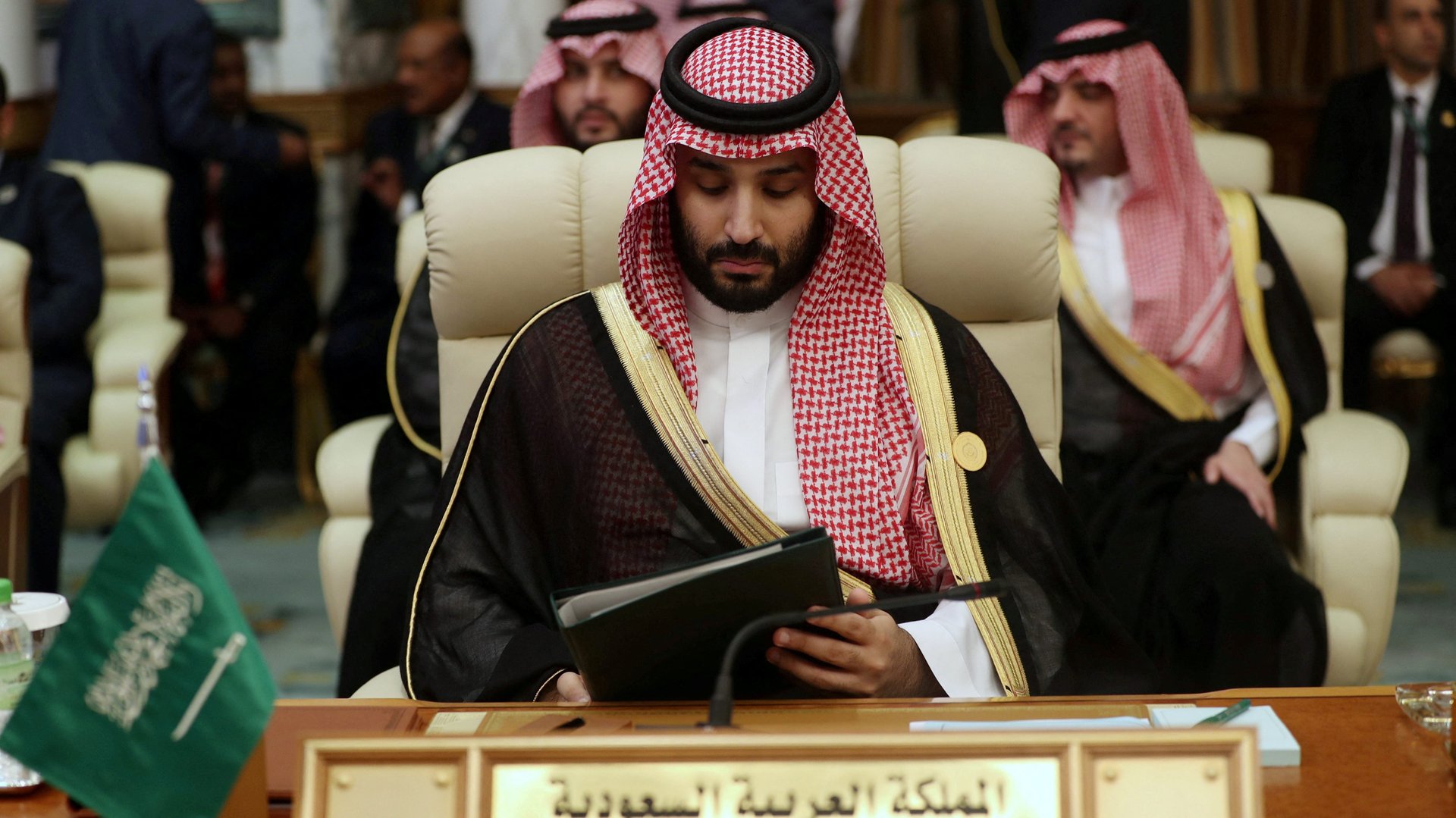Why Joe Biden wants to visit Saudi Arabia
US president Joe Biden will visit Saudi Arabia this month, The New York Times reported yesterday (June 2). The trip will represent a major reversal of Biden’s campaign promise to treat Saudi Arabia like a “pariah” over the 2018 murder of journalist Jamal Khashoggi. But as gasoline prices in the US continue to hit record highs, the president has little choice but to deal with the Saudis if he wants to get more crude oil on the market.


US president Joe Biden will visit Saudi Arabia this month, The New York Times reported yesterday (June 2). The trip will represent a major reversal of Biden’s campaign promise to treat Saudi Arabia like a “pariah” over the 2018 murder of journalist Jamal Khashoggi. But as gasoline prices in the US continue to hit record highs, the president has little choice but to deal with the Saudis if he wants to get more crude oil on the market.
The price of Brent crude oil, the international benchmark, is around $118 per barrel, its highest point since 2012. The spike comes as global economic activity has picked up following the pandemic, and the war in Ukraine has led Europe and the US to ban most imports of oil from Russia, the world’s number-three producer. By the end of 2022, Russian oil production is expected to fall 17%, by about 1.8 million barrels per day.
Even though the US sourced only about 3% of its oil imports from Russia prior to the war, the crude oil price is based on global trade, so a major loss of production anywhere means higher prices everywhere. The only way for Biden to nudge prices down is to push production up.
Saudi Arabia is one of the only countries with oil to spare
Oil production in the US itself is rising slowly and could reach a record of 13 million barrels per day by 2023, up from about 11.9 million now. Still, said Bloomberg Intelligence senior oil analyst Salih Yilmaz, “to see a ramp-up in US production, we’d need to see more capital expenditure going into the sector, which is arguably happening too cautiously and slowly as companies focus on shareholder returns over capital spending.”
So, while the Biden administration continues to prod domestic drillers, it also needs to look abroad. And there, Saudi Arabia is the only country with significant oil resources that could be brought into operation this year. Throughout the pandemic, Saudi Arabia has consistently pushed its peers in the Organization of Petroleum Exporting Countries (OPEC) to implement tight production quotas in order to avoid overproduction and a price crash. Now, Biden is pushing for the Saudis to relax that stance.
OPEC agreed on June 2 to modestly increase production quotas across the bloc. But it wasn’t enough to fully offset the losses from Russia. Ultimately, only Saudi Arabia can bring significant new volumes to the market. And if the country does choose to open the taps, Yilmaz said, “that would take [Saudis] up to [production] levels that have not been tested for prolonged periods of time.” In other words, gasoline price volatility caused by the loss of Russian oil in the global market may not be resolved anytime soon.